Mythopoeia Or … It’s Opposite
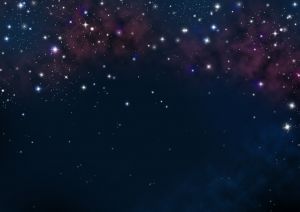 – From “Mythopoeia” by J. R. R. Tolkien
– From “Mythopoeia” by J. R. R. Tolkien
He sees no stars who does not see them first
of living silver made that sudden burst
to flame like flowers beneath an ancient song,
whose very echo after-music long
has since pursued. There is no firmament,
only a void, unless a jeweled tent
myth-woven and elf-patterned; and no earth,
unless the mother’s womb whence all have birth.
The heart of Man is not compound of lies,
but draws some wisdom from the only Wise,
and still recalls him. Though now long estranged,
Man is not wholly lost nor wholly changed.
Dis-graced he may be, yet is not dethroned,
and keeps the rags of lordship once he owned,
his world-dominion by creative act:
not his to worship the great Artifact,
Man, Sub-creator, the refracted light
through whom is splintered from a single White
to many hues, and endlessly combined
in living shapes that move from mind to mind.
Though all the crannies of the world we filled
with Elves and Goblins, though we dared to build
Gods and their houses out of dark and light,
and sowed the seed of dragons, ’twas our right
(used or misused). The right has not decayed.
We make still by the law in which we’re made.
Mythopoeia, according to Wikipedia, is “a narrative genre in modern literature and film where a fictional mythology is created by the writer of prose or other fiction … The authors in this genre integrate traditional mythological themes and archetypes into fiction.”
When I first heard the term, I was confounded. Which is it, I wondered, the creation of a myth or the integration of traditional myth into a new story?
Maybe it’s both in combination. And yet, there seem to be two distinct methods of imagining and creating speculative fiction. One takes an existent myth or fairy tale and makes it anew. The other, through an amalgamation of experiences and persons and settings, creates (or “sub-creates”) a new myth.
 I’m mindful of this latter in particular because the CSFF Blog Tour is currently featuring Andrew Peterson’s The Monster in the Hollows (Rabbit Room Press), book three of the Wingfeather Saga.
I’m mindful of this latter in particular because the CSFF Blog Tour is currently featuring Andrew Peterson’s The Monster in the Hollows (Rabbit Room Press), book three of the Wingfeather Saga.
In this series, Andrew eschews the use of dragons (except for the sea variety) and elves, dwarfs and ogres. Instead his story revolves around Fangs and toothy cows, cloven and ridgerunners. The saga does not take place in Middle Earth but in Glipwood, a place at the edge of the Dark Sea of Darkness and in the Green Hollows, the last holdout against Gnag the Nameless who has learned the secrets of stones and songs.
Andrew is not alone in creating a new place and populating it with new myths. Sharon Hinck did something quite similar in her Sword of Lyric series (the first volume, The Restorer is re-releasing with Marcher Lord Press this fall). While anchoring the story in this world, Sharon takes her protagonist through a portal to a new place — not Narnia or Stephen Donaldson’s The Land, but a world of complex political alliances and conflicts, where Rhusicans and the People of the Verses intermingle, where a Restorer is hoped for but not expected.
Karen Hancock (Legends of the Guardian-King series) is another author who created her own world, complete with political intrigue, religious prejudices and practices, history, and never-before-encountered monsters.
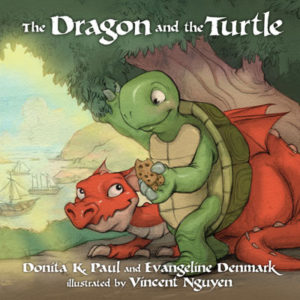 Certainly there are others. But beside these speculative writers are others who borrow from existent myth, or at least borrow mythological creatures. Donita Paul comes to mind with her Dragon and Turtle picture books and her DragonKeeper Chronicles and Dragons of Chiril series, as does Bryan Davis (Dragons In Our Midst and Oracles Of Fire). Both obviously feature a well-known mythological creature, but both turn the “known” on its head. Bryan does so with the equally well-known legend of King Arthur.
Certainly there are others. But beside these speculative writers are others who borrow from existent myth, or at least borrow mythological creatures. Donita Paul comes to mind with her Dragon and Turtle picture books and her DragonKeeper Chronicles and Dragons of Chiril series, as does Bryan Davis (Dragons In Our Midst and Oracles Of Fire). Both obviously feature a well-known mythological creature, but both turn the “known” on its head. Bryan does so with the equally well-known legend of King Arthur.
Scott Appleton, in his Sword of the Dragon series (AMG Publishers), is another example of an author making use of existing mythical creatures while putting an entirely new spin on them.
Both J. R. R. Tolkien and C. S. Lewis utilized existing myths in their epic fantasies. Lewis, however, employed the “creation by amalgamation” method in his space trilogy.
So my question — is one method better than the other?
For readers, is one more enjoyable? more interesting? fresher? less predictable?
And for writers, is one harder to write? more restrictive? more imaginative?
As you might suppose, I have my own way of working and my own reading preferences, but first I want to hear about yours. Do you like fairy tales retold? vampire myths turned upside down? mermaids rewritten? Or would you prefer to encounter a new world with beings you’ve never conceived of before?


































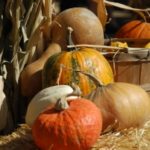
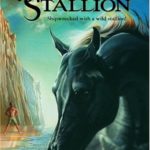
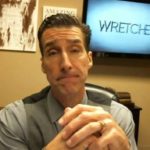
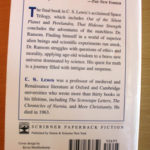




Wow, what a poem. That’s fantastic.
For me, I enjoy reading both. There’s lots of fairytale adapts out there that put a new spin on a familiar tale (like The Rose Daughter or Spindles’ End, by Robin McKinley, or Ella Enchanted by Gail Carson Levine). About halfway through, you realize what fairytale it is, and start watching to see if it will turn out like the fairytale does. Sometimes it does, sometimes it doesn’t.
But it’s fun to read books that create their own mythos, too. The Chrestomanci books imagine the Twelve Related Worlds, where an enchanter with nine lives is the only one powerful enough to keep other magic users in line. Basically, his job is to keep the world from going the way it goes in the Bartimaeus trilogy, where the world is run by evil wizards and their demons. (Different author, though.)
I’ve never personally adapted a fairytale, but I’ve written lots of fanfiction, so I imagine they’d be similar. I think it’d be fun to take an established story and characters, flesh out the characters and possibly recast their world so it’s new and unexpected.
Making up your own fantasy world is a little tougher, because you have to start from scratch. You get to mess with things like planet rotation, climates, races, languages, currency, government, ecology, and the list goes on and on. Not that you’ll put it in the book, but you have to know it in order to write the story there.
I’ve never written fan fiction or adapted a fairy tale. I think it would be interesting to give it a try, though.
Interesting to see your diversity, Kessie. I love hearing that. When marketing people like to box readers in, I tend to bristle a bit. 😉
Becky
Do you know that one fairytale about the girl whose seven brothers get turned in swans, and in order to change them back, she has to weave them coats made out of stinging nettles and never speak a word, and while she’s doing this, the townsfolk are going to burn her as a witch?
Yeah, I always thought I’d love to either see that turned into a novel, or adapt it myself. It goes back to that “sibling love” that’s seldom seen in books these days. 🙂
Kessie, what you should read is Birdwing by Rafe Martin. It focuses on that boy from the fairy tale–a huge tearjerker but so beautiful.
Galadriel: No, I had never heard of that book! It’s on my list now, thanks so much!
Mythopoeic fiction is the genre that I most enjoy reading, and (more or less) which I have found myself writing. When I have to explain this, I tend to resort to sending people to the Mythopoeic Society’s web page; I’ve found the Wikipedia page particularly unhelpful.
I think the answer to your questions amounts to “whatever works” and “Your Mileage May Vary”: I enjoy reading both fairy tale retellings, reimaginings of traditional fantasy elements, and entirely new concepts, so long as it’s well done and it never makes me say, “Wait a minute … doesn’t that contradict what you said back there …” As a writer, I don’t limit myself to one or the other; I borrow some elements “straight”, turn others on their heads (I’ll have a post on my blog next Monday about what I’m doing with dwarves, for example), utterly reimagine yet others, and then create still other apparently-entirely-new ones.
Also, as my familiarity with the Mythopoeic Society makes me clearly aware, mythopoeic fiction isn’t limited to fantasy. Many subgenres of science fiction also require the sort of worldbuilding that lends itself to “mythopoeia”, and some authors even go to the extent of inventing myths for their characters to cite (“the Maiden of the Lake” in Bujold’s Vorkosigan Saga, for example). And the Space Trilogy is arguably science fiction (if not based in very good science).
As for the Space Trilogy, some of the scientific failures are deliberate (the canals on Mars) and some of them are just…zeerust.
Well, yes … but … Lewis is explicitly (cf. his posthumous essay “A Reply to Professor Haldane”) using just enough “technical” details, which he himself didn’t care about, to make his “romances” or “fantasies” plausible to the SF-reading public. But this is apparently enough that the critics criticized his bad science, instead of ignoring it as just another fantastic detail (which is how we treat apparently-bad science in strict fantasy), and in the modern understanding of science fiction (including both “space opera” and “hard” SF where the science is economics, biology, sociology, or any of the other “soft” sciences) at least That Hideous Strength, and probably the other two, arguably qualifies based on his treatment of his primary subject matter as opposed to the “stage dressing.”
While I like both styles, I think original mythopoeias imitate Tolkien too closely: We don’t need more Tolkiens. We have one. What we need is more original writers like him who aren’t afraid to be different.
Yes, and I get so tired of seeing his elves in everybody else’s books. C’mon, people, make up your own version. The Fey are really interesting without using Tolkien’s framework.
I like both, personally! I love to read creative retellings of myths, fairy tales, and legends. But completely fresh and new worlds are fascinating to me too!
I also write both. My two longest-standing works-in-progress to date are a science-fiction trilogy (no basis in previous myth, entirely original) and a retelling of Sleeping Beauty with a twist (although that one will be much more original next time I come around to rewrite it again). 🙂
Jonathan, interestingly when CSFF toured Sharon Hinck’s The Restorer, some bloggers took issue with her science because she has a unique blend of fantasy elements with scientific advances. Those criticizing apparently weren’t satisfied with “it’s fantasy.” They thought the incongruity of a society advanced in one area and backward in another needed explanation. I didn’t. I simply thought, That’s the way things are in that world.
At any rate, it showed me how one little thing like that can be off-putting to some readers. It messes with their expectations, I guess, and not in a good way.
Becky
My point was, if a book has enough science-fiction elements in it to be criticized on scientific/technical grounds, it’s (arguably) science fiction—perhaps SF/fantasy, SF/mystery, or what have you, but still SF. Even if the science behind those elements is largely bunk or hand-waving double-talk, as much of the “hard” science in the Space Trilogy is. But for readers who aren’t accustomed to science fiction or aren’t experts in the field in question, they can let it slide by, just like I’d miss any incongruities in the police procedures of a SF/mystery, for instance. By contrast, to pick two familiar examples, as far as I know nobody complains that Narnia’s flat world is impossible, or that there’s no way that Middle Earth can be flat but wrap around for everybody and everything except Cirdan’s ships.
Only once did I attempt to write about a whole new world. My stories either take place in my one made-up world, or the traditional kingdom of fairytales, as retellings.
It would be awesome to invent. Perhaps it would be good to go back to that one ‘attempt.’
About borrowing from what exists in literature, one of the most original (and horrifying) books I’ve read was The Book of Lost Tales, which used elements from various fairytales to reveal their heart of darkness, all in the service of an important theme. About which type I like to read, it’s both: completely new things, and stories built from conventional elements.
This is a good opportunity to think about these things, and be deliberate in our writing.
I suppose there is no connection to Tolkien’s Book of Lost Tales?
Galadriel, sorry to be so long in replying!
Right! Absolutely no connection to Tolkien’s Book of Lost Tales. I goofed! The book was John Connolly’s The Book of Lost Things. Sorry!